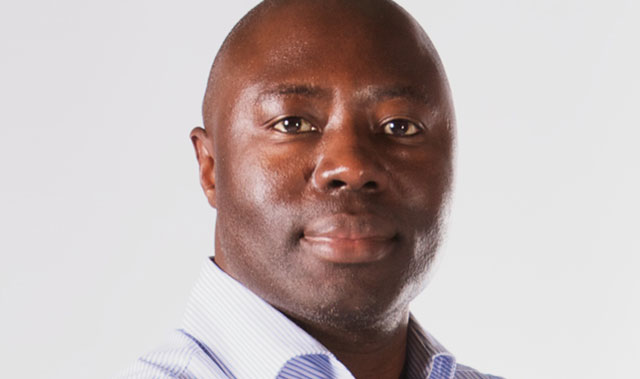
Regulators and policy makers across Africa need to work with the telecommunications industry to harmonise radio frequency spectrum for broadband. Doing so will help drive down costs, especially of handsets, says Magnus Mchunguzi, who is MD of Ericsson in South Africa.
Working together on spectrum is one of the ways operators can ensure they drive down the cost of mobile broadband services and get them in the hands of more people on a continent where consumers are more cost sensitive.
Mchunguzi says there are “four or five big operators” in Africa, which together control almost 80% of the mobile market. If they work with regulators to ensure the “digital dividend” — the spectrum that will be freed up when terrestrial broadcasters move to digital technology — is harmonised, then it will allow them to go to handset manufacturers and order low-cost devices in large numbers, pushing down prices for consumers through economies of scale.
“In 2015, allocate all of the 800MHz spectrum at once,” says Mchunguzu. “Then negotiate with device manufacturers and tell them they need to provide a US$20 smartphone.”
Smartphone penetration across Africa is still fairly low, he says — the vast majority are feature phones, though smartphone penetration is growing much more quickly, according to new research from Ericsson. “We could do it quicker, but we need to think broadly.”
The price of 3G and especially 4G/LTE devices remains a barrier to consumer adoption of mobile broadband, he says. “The phone plays a bigger role in access in Africa, but it’s also a barrier.”
Although allocating the digital dividend will go a long way in addressing affordability, intervention is still needed to ensure rural areas that are not commercially feasible for the operators to deploy infrastructure are also served by broadband.
There are a number of ways of achieving this, says Mchunguzi. One is, instead of operators paying money to a universal service fund as they do in many countries, including South Africa, they could instead direct that money to building infrastructure in underserviced areas.
“Audit that money each year. Maintain that network and provide services to the rural areas.”
He says the operators could be given geographic areas they are expected to cover — in South Africa, MTN could cover the rural Eastern Cape and Vodacom the Free State, for example.
Operators could also be given cheaper access to spectrum in those areas. “Implement it as a sliding scale as you move into the rural areas,” he says.
Mchunguzi is more concerned about proposals for a wholesale operator to deliver services into the rural areas. “Who will own and run the network? Will they remain only a wholesale provider, or will they become a competitor to the current players? How will you decide who will get access to it?”
There is also the danger that the network fails when there are no alternatives available. “This is critical infrastructure for a nation. Right now, if MTN fails, you have Vodacom and Cell C and others.”
There are no examples anywhere in the world where a wholesale model has worked in mobile, he adds. “We must interrogate this in more detail. Is it needed? What is it really answering?”
Mchunguzi also laments the fact that South Africa has fallen years behind in its digital migration programme, saying delays in allocating the digital dividend will harm the economy. “Investors that had earmarked money for South Africa are moving it to neighbouring countries that are ahead of the game.”
He says instability in government is a problem. “We have had the largest turnover of ministers [in any sector]. We need a steady hand for the next two years to get through digital migration and address issues that otherwise might not happen.” — © 2014 NewsCentral Media




